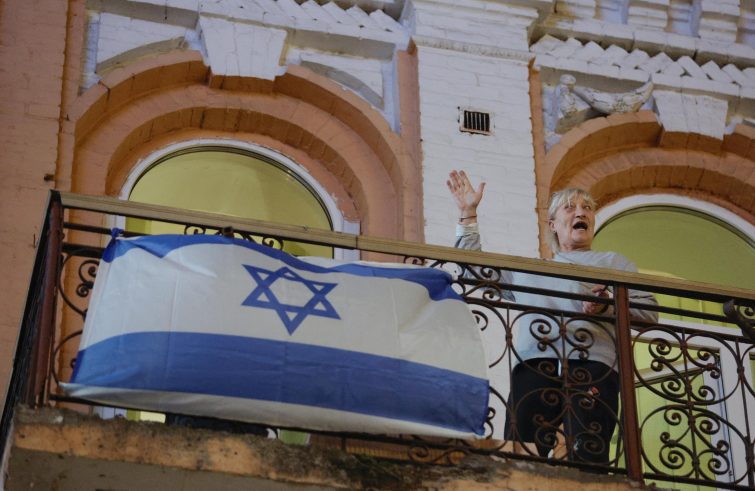
On the third day of the war, a rocket barrage from Gaza continues to fall into Israel, which has repeatedly bombed and hit around 800 Hamas targets and other targets in the Strip overnight. So far, the army has carried out 1,149 air strikes on the Palestinian enclave, including 800 yesterday. There are seven, possibly eight, villages in southern Israel where the Israeli military is battling armed Gaza militia that infiltrated the area again last night. Military sources said full control of the villages would be regained by the end of the day. As the hours go by, the number of dead and wounded is rising: more than 700 Israeli dead, including 260 from the rave party massacre at the border zone, and more than 2000 wounded. The toll is destined to rise, as an Israeli army spokesman said in an overnight briefing. An unprecedented number in the history of Israel. There are also 130 hostages held by Hamas and Islamic Jihad, including soldiers and civilians. Airstrikes killed 436 Palestinians in Gaza. To these must be added the armed militiamen of the factions, some 400 of whom were killed by the army in Israel, according to data issued by the military spokesman. The Gaza Health Ministry reported some 2,270 wounded. We discussed the ongoing war with Matteo Bressan, analyst and member of the Scientific Committee of the NATO Defense College Foundation and Professor of Strategic Studies at the LUMSA Master’s degree programme.
Could the Hamas attack of October 7 be Israel’s 9/11?
We could also call it Israel’s 9/11, but what stands out in this case is the qualitative leap that extends beyond acts of terrorism. What happened was a coordinated attack on 20 sites on Israeli territory, with thousands of rockets fired from Gaza, which have so far claimed hundreds of Israeli victims, both civilians and soldiers. These are the numbers of military operations, not terrorist attacks.
This attack has dealt a serious blow to Israel’s security myth. Based on the emerging reports, it seems clear that there were some incomprehensible security failures. How can this be explained?
So far, the Israeli army has made no official statement. It is evident that such a heavily monitored border, with video cameras, patrols and drones, has proved vulnerable to multiple attacks. In any case, I would be very cautious in making any assessment, not least because less than two days have passed since the attack, and there is an emergency to be dealt with before determining possible responsibilities. Any further casualties among Israeli civilians and military personnel, in addition to those reported so far, would do enormous damage to the security image of the Jewish state. The dissemination of photos and footage of abductees and burning tanks is part of a strategic communication designed to strike and weaken the enemy’s will to fight. Granted, Israel is pulling together, but these are destabilising images.
Who or what could be driving the qualitative leap that you mentioned earlier? Could Hamas have carried out this warlike operation on its own?
Due to a number of consolidated historical dynamics, it is reasonable to assume the indirect involvement of the self-proclaimed “Axis of Resistance”, consisting of Iran and the Lebanese Hezbollah. An involvement in terms of supplies and training. We have no evidence to confirm this involvement with certainty, but we do have statements of full support from Iran and Hezbollah for Hamas and for Saturday’s attack.
The hostages now seem to be the casus belli; many of them are Israeli civilians and soldiers, but there are also foreigners. How do you think Israel could deal with this aspect of the conflict? In this regard, we understand that Israel has asked for Egypt’s mediation.
At this stage, it’s too early to think about a negotiation that could lead to the release of these hostages. Several options are on the table, while the bombardment of Gaza has intensified. However, when a military authority will present possible actions to the political leadership, I assume that the hostages will be one of the issues on the table. But as the Israeli authorities have said, the first step is to stop the attacks on Israeli soil and to stop Hamas from continuing to fire rockets. In this context, there is the ‘hostage crisis’ – there have never been so many hostages – which has to be played out at the negotiating and diplomatic level with the various interlocutors, such as Egypt, Turkey and the Gulf countries.











